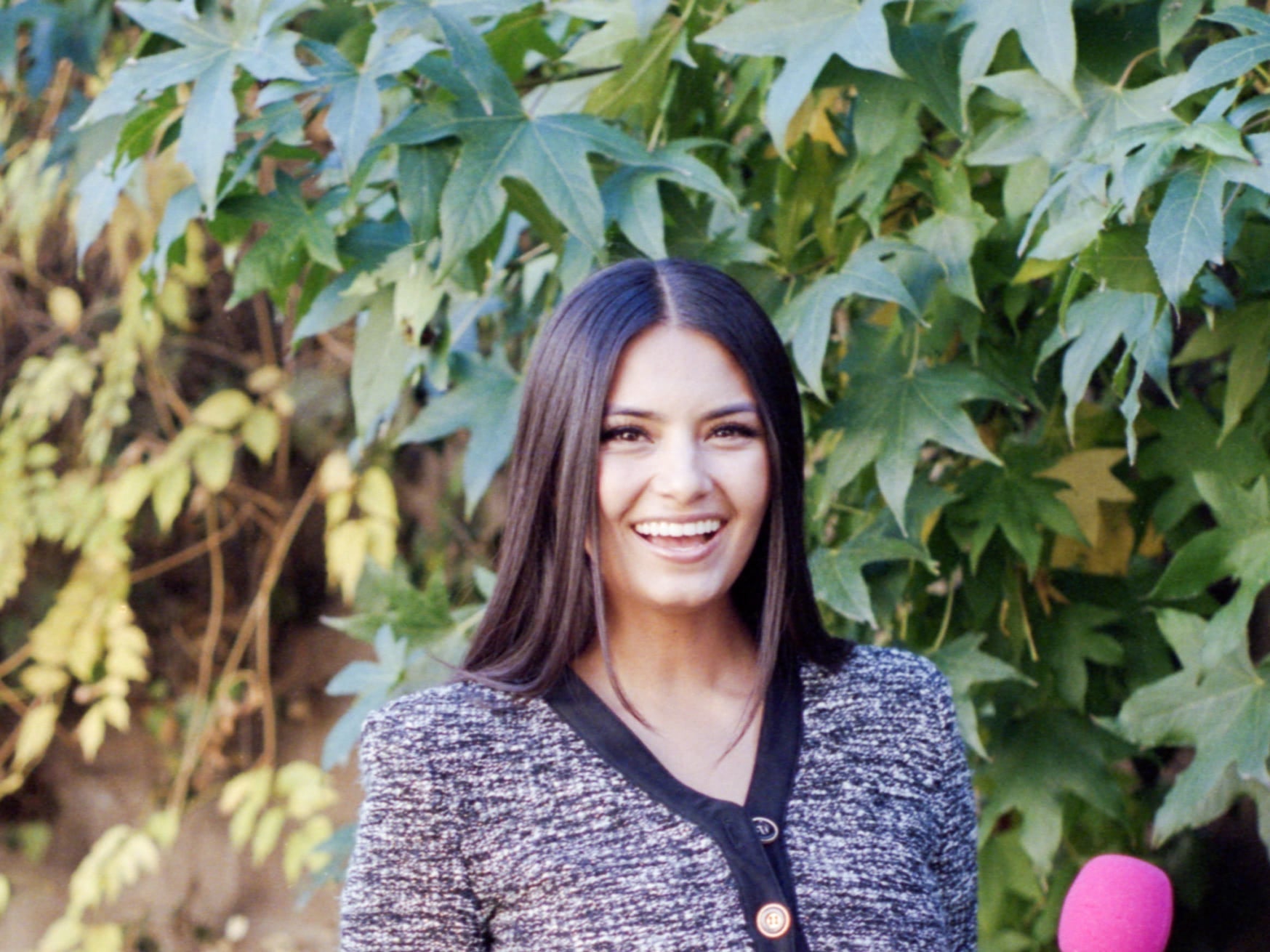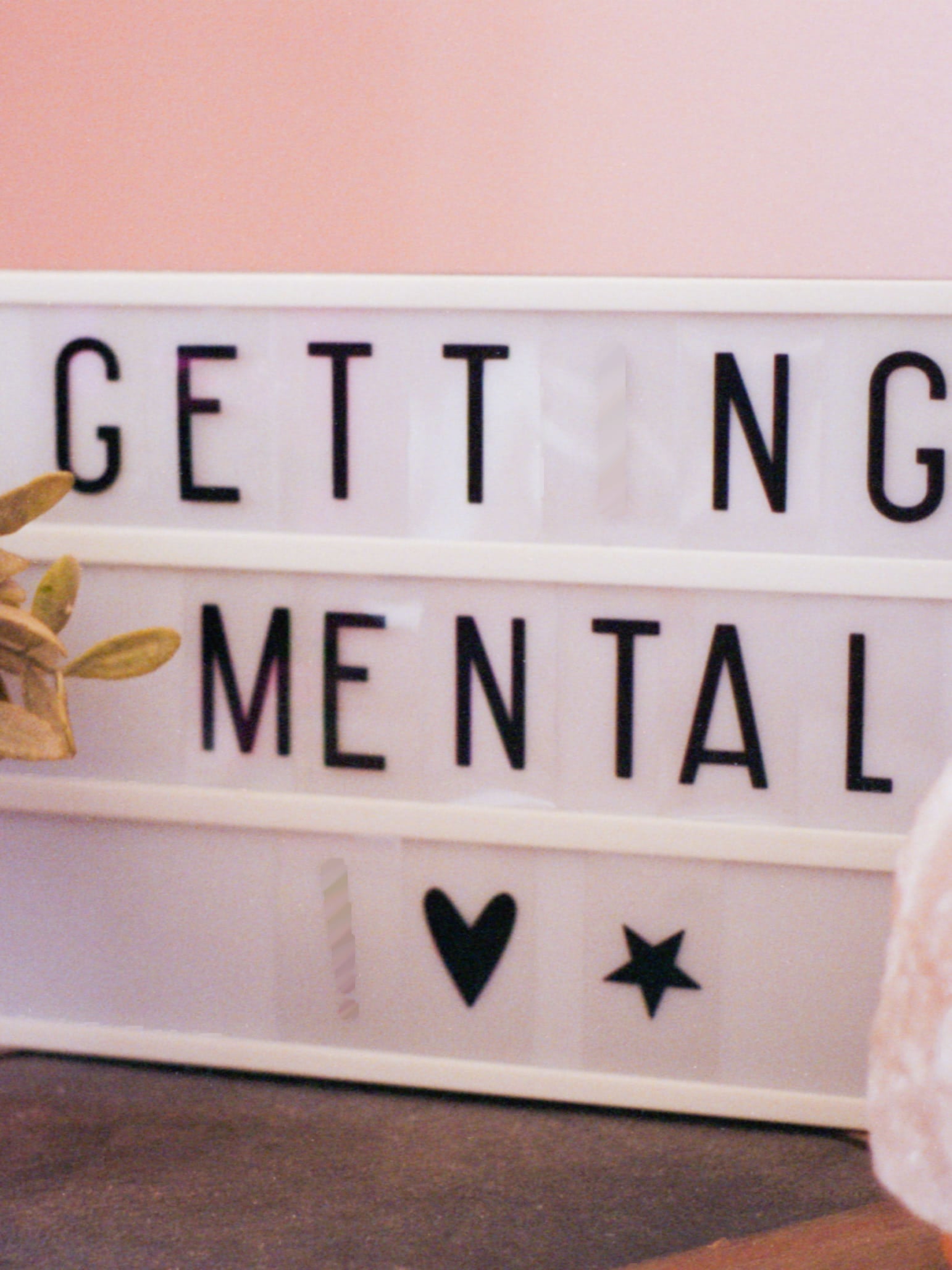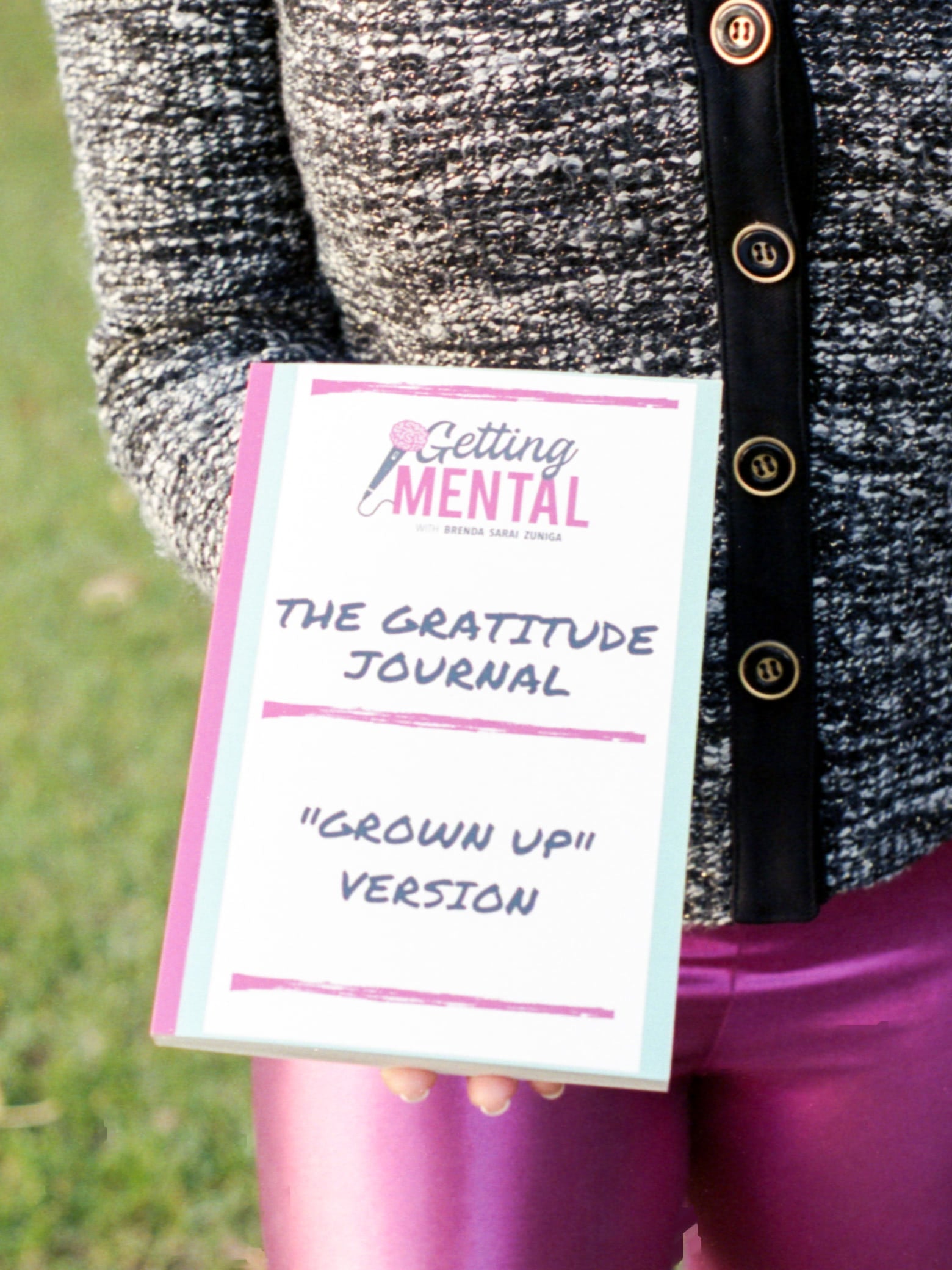Brenda Sarai Zuniga


The musical comedian, mindfulness coach, and motivational speaker who believes positive self-talk and meditation is a beautiful process.

Meditation every single morning. When I wake up, before I get out of my bed, I put on a YouTube meditation and just take deep breathes for a good 15 to 20 minutes. It’s life-changing. And then before I do anything else before I walk into the kitchen or anything, I either make my bed, brush my teeth or wash my face. I do it in random order every day, but it’s those three things that I do before I get up. It creates a bit of structure for me, which is key for ADHD. We need structure.
What grounds you?
Playing the piano makes everything disappear. Any worries, any stress, it just melts away. The second I start playing this baby girl, I’m in Narnia. I’m in heaven. It’s everything.
As someone with ADHD, we get very frustrated with the process of executive functioning and having the patience to do something. But with my piano, I am able to tap into my hyper-focus. I’m able to be at this piano for eight hours, nine hours straight. In the beginning, I sucked. I didn’t eat or drink any water, but I was able to pick up on it very quickly. I was so passionate about it. When we’re passionate about something, try prying us away from that.
Of course, there were days where I thought, “Why am I not getting this fast enough?” That is when I began to speak to myself and say, “Hey, it’s cool. This is going to take some time, but it’s worth it. You can’t just abandon ship and go to the next thing. This is something that you’ve been wanting to do for a while. So we got to stick to it.” It’s having kind conversations with yourself. I’m very kind to myself. I never say to myself, “That’s so dumb of you,” or “You’re stupid,” or “You’re dumb for not getting this done.” It’s the opposite. I talk to myself and say, “Hey, we got this, we’re smart. Look at us.”

Talking to myself is a beautiful process that now comes very naturally. Before meditation, before mindfulness, before therapy, and before training my ADHD, I was riddled with depression and anxiety. I was told that when ADHD goes undiagnosed for long periods of time, it can manifest itself as depression, anxiety, and rage. So when I began to treat my ADHD, my depression and anxiety went away for the most part. But that inner critic was still there. So I started to practice mindfulness, meditation, and positive affirmations. I got into a mindset of practicing gratitude every single day. I actually created my own gratitude journal.
Getting into that mindset and practicing a lot of self-compassion helped me get to a place where I genuinely loved myself and genuinely talked kindly to myself. It took quite a while, but a lot quicker than I thought it would. When you practice these things, our minds can create neurogenesis, which is a very fancy way of saying new neurons in your brain. When you introduce these positive coping skills and techniques that you’re not used to, they may feel and seem really weird. But with repetition, your brain will begin to pick them up through autosuggestion. The more you begin to embody it, the quicker you’ll start to feel these things.

Currently, my mental health is great. I take care of it every day. Of course, there are days where I’ll notice things like my dishes piling up or there’s a mess here and there. And I’m very quick about fixing that because I’m always talking about warning signs and how important it is to look at them. I used to deal with depression. I used to deal with anxiety and one of my warning signs about depression is if my dishes start piling up.
How does intimacy and relationships impact your mental health?
Intimacy is important. It’s absolutely everything. I value connection with others so much. I love people. I love connecting with others again. That’s what life’s about. We’re social creatures, which is why quarantine has been so hard on all of us because we’re not meant to be isolated. In order for us to thrive, not only do we have to be part of a community, but we have to feel like we’re part of a community.
I don’t want to say I’m lucky. But growing up, I lived in 15 homes. I attended 11 different schools. I moved around so much. My environment was constantly changing. So in order for me to thrive, I had to be incredibly adaptable and resilient. And so when COVID hit, because I was used to so much instability and chaos for me, I was like, cool. next challenge. I didn’t feel like the world was ending. To be honest, I thought this was just another one of life’s curveballs. I always made sure I kept my connections with my friends via FaceTime, reaching out to my audience on Instagram, connecting with fans all the time, doing Instagram lives. And so, when the world started to open up again, I was ready. Let’s do this next level. And I haven’t stopped. I know that that’s not the case for a lot of people. But I think it’s important to realize that we are a lot more resilient than we give ourselves credit for. And we can adapt a lot more than we think we can.
What’s your take on medication like anti-depressants or supplements?
I think it’s great. Medication has completely changed my life. A couple of years ago, I was on antidepressants because I went through a hardcore breakup and I did not know how I was going to get out of it. I was seeing a therapist. I was talking to my doctor, and I got on antidepressants for about six months. It really helped get me over that bump. I know that there are pros and cons, but this is where the conversation with my doctor was very open. If I started noticing side effects or symptoms, then we would talk and adjust the dose.
With ADHD, at first, when it was suggested I take medicine, I said no, I’m not crazy. I don’t need medicine. My therapist said we’ve tried a lot of things and I really think that you would benefit from this. I credit my medicine for being the CEO that I am because I was able to sit down and focus and actually have my words come out in a sentence versus having a thousand different thoughts jumbled. I was able to not be so scatterbrained. I was able to actually finish projects and not get excited to start them and then get frustrated with executive functioning.
I used to abandon a project, start a new one, and then get anxious. Because I would leave a task undone, I would get depressed because now I feel like a failure. But screw it. I’ll just numb it out with starting a new project. It was a cycle of hell that I lived in for so many years.
It’s not like I take medicine and say, I’m cured. I’m perfect. There are days where the medicine, even though I take it, it won’t work as effectively as other days. But that’s because I’m not practicing the other positive skills like mindfulness meditation, connecting with friends, or gratitude.

I have to have music playing 24 7, and sometimes I will have the same song on over and over. It’s a way of stemming to regulate my focus and central nervous system. I noticed that the times that I don’t have music playing in the background, or I don’t have the same song on loop, something happens where I feel a little uneasy.
A few weeks ago, I was in Texas at my boyfriend’s apartment. We had music playing all day and the music got cut. I was doing my makeup and all of a sudden, I started getting an anxiety attack. And the only thing that we could boil it down to was I didn’t have my music playing. So music is very essential for me. It’s my place where all worries go away. It’s where I feel at most home.